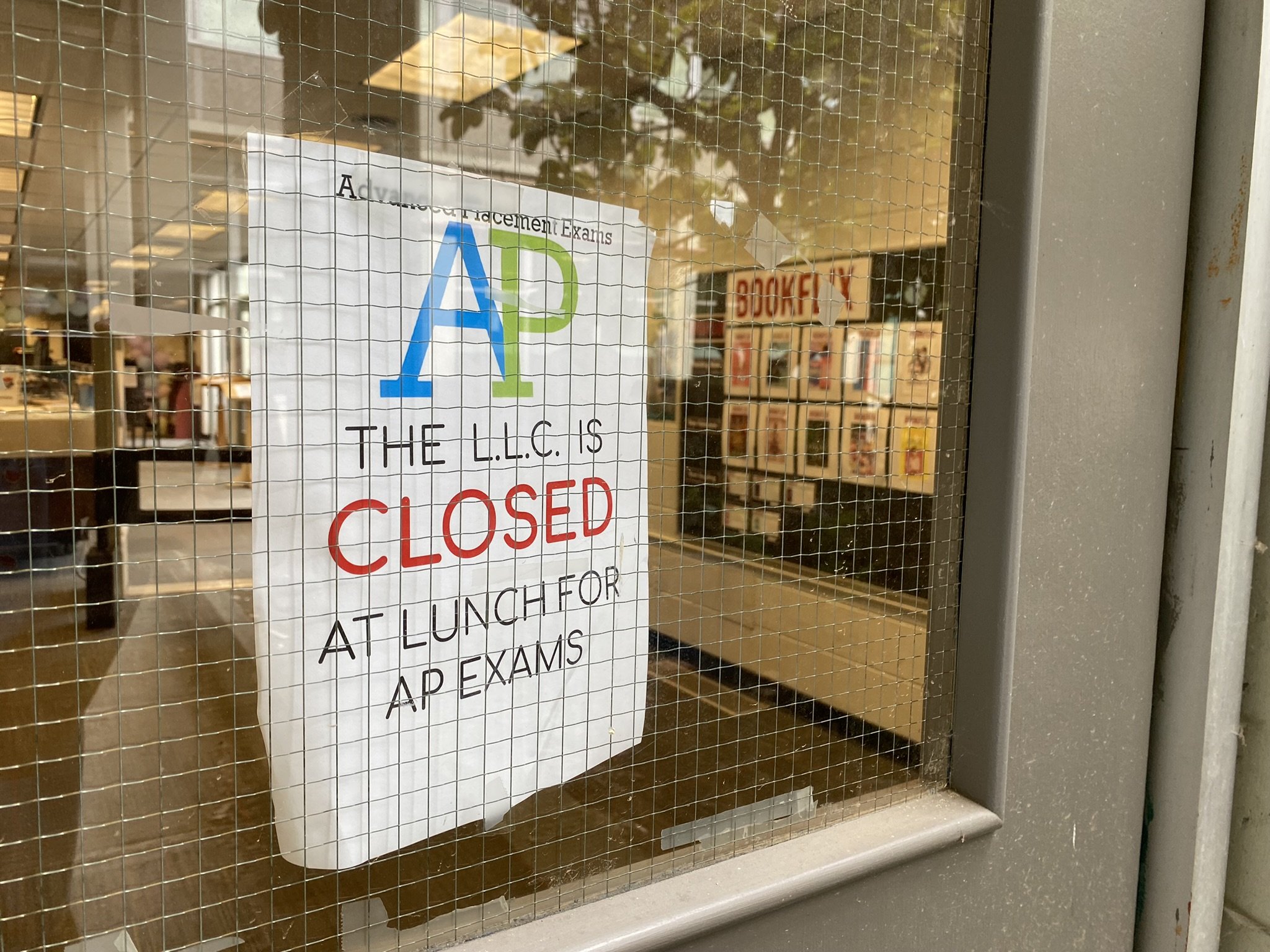Students Brace Themselves for AP Exams
Photo Credit: Stephen Kosar
This year, Hamber offered a selection of AP courses and exams in subject areas such as psychology, physics, statistics, and literature. Administered from May 1 to May 12, AP courses provide university level educational opportunities and credits for students who are looking to further their education before completing high school.
Mr. D. Mugford (English) teaches AP Literature and Composition. “Generally, we cover a modern and a classic play as well as a classic novel and a modern novel,” he explained.
Ms. N. Mysuria (Mathematics) teaches two AP courses, Calculus and Statistics. “AP Calculus takes math to the next level, it’s abstract, whereas AP Statistics is more applied and less focused on the computational part.”
Teachers and students with AP courses have found challenges with the semester system. “If I had AP Lit and Composition 12 in semester two, that means we don’t start until February 2nd and their exam is May 3rd […] it just doesn’t leave a lot of time,” said Mr. Mugford. Mr. Mugford also believes that the semester system does not help students synthesize the information they learn in class, as they have to come back the very next day and be ready to absorb new concepts.
Oscar Shi (12) has taken a variety of AP courses, including AP Calculus AB last year and AP Chemistry, AP Physics C, and AP Literature this year. Chemistry and Physics C were in the first semester, and he found the three month long gap between the end of the course and the AP exam very difficult.
“You don't really have time throughout all three of those months to be constantly keeping up your skills, because you have a whole other semester’s worth of courses,” he said. “I think that's still better than having an AP course in the second semester, [...] it's essentially two and a half months to learn a whole AP course.”
“Last school year, I taught AP Calculus in semester two and only had around three months to cover the content, as the AP exam was in May,” said Ms. Mysuria, who taught AP Calculus AB and AP Statistics this year during semester one. When it was held in semester two, Ms. Mysuria said, “I had to teach at a fast pace and students felt stressed as they did not have enough time to practice in order to master the skill [...] The drawback is that students may not be as motivated to self-study for the exam in May once the semester ends.”
“I took all of my APs in semester one,” said Jessica Tobin (12), who is writing AP Statistics, AP Calculus AB, and AP Physics C. When asked about her study plans, she said, “I plan to start early, so instead of starting maybe a week before, I've started almost half a month before [the exam]”. She’s hoping the early start will help “get that info back into my brain.”
Kylan Sheppard (12), who wrote the AP Literature and Composition exam, would advise future AP students to “prepare yourself for an increased level of academic rigour. AP courses and exams are meant to stand on the same grounds as an introductory-level college course.”
He also expressed that “following an accelerated path can be very beneficial for cultivating like-minded peers,” even if students decide not to write the exam.
For students wishing to take AP courses and exams in the future, Ms. Mysuria advised students to “take AP Calculus or AP Statistics only if they plan to write the AP exam in May.” Students should instead take regular Calculus 12 and Statistics 12 if they only want exposure to university-level math, as both courses cover most of the AP curriculum while no exam is written.
Mr. Mugford also advised students should only take AP courses if they’re genuinely interested. For AP Literature specifically, students should be well-read and spend enough time thinking about what they read. “If you have that love or that passion for literature, that goes a long way,” he said.
Shi said, “It's certainly very challenging and expensive. I think it can be a very enriching experience if you commit to it.”
Tobin suggested that most AP courses do not fully cover their first-year university equivalents. “I probably would just do the course again in university, especially if those were fundamental courses,” she said. “You should definitely consider if you're going to use the AP credits in post secondary.”

